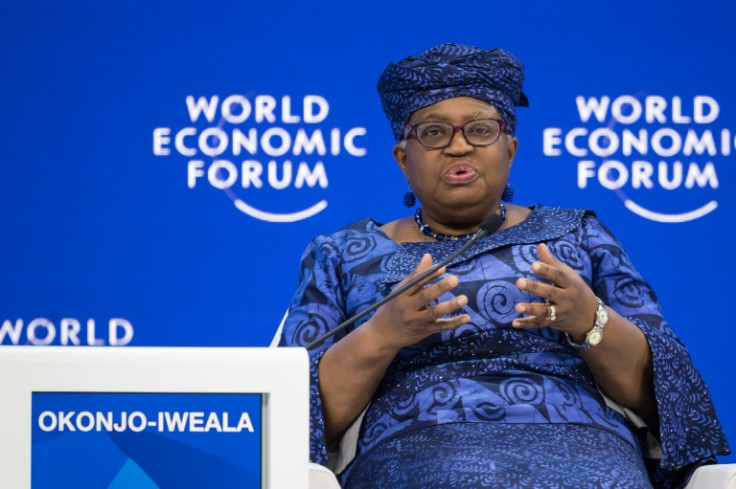Big Trade Deals Likely Elusive At WTO Meet In Abu Dhabi

The world's trade ministers could put the final touches to a historic fisheries deal when they meet in Abu Dhabi later this month, but other landmark agreements will likely prove more elusive.
Several issues remain stuck in the weeds ahead of the World Trade Organization's biennial ministerial meeting, as anxiety swells over the impact that geopolitical tensions and the looming US elections could have on global trade.
Two years ago at its Geneva headquarters, the WTO's last major gathering struck deals on fisheries, on Covid vaccine patents, and on the need to reform the global trade body itself.
But ahead of the WTO's 13th ministerial conference (MC13), set for February 26-29, trade diplomats admit they are unlikely to break out the champagne.
"It's going to be a bit of a battle," said one Western diplomat, who asked not to be identified.
Rashid Kaukab, a professor at the International Institute in Geneva (IIG) business school, said he was "cautiously optimistic" that some deals could be accomplished.
But "no big bang, no solution to everything", the former Pakistani diplomat told AFP.
"That is not going to be possible."
Adding to the challenges for those gathering in the United Arab Emirates is the ongoing crisis in the Red Sea, where Yemeni rebels' attacks on vessels are disrupting international shipping.
"The (meeting) will take place in a challenged region of the world," John Denton, head of the International Chamber of Commerce, told AFP, stressing the need for "strong leadership" from the UAE hosts and WTO chief Ngozi Okonjo-Iweala.
Even without such difficulties, reaching agreement on anything is a feat at the WTO, where full consensus is needed to conclude a deal.
Most hope rests on finalising a historic agreement banning harmful fisheries subsidies, which was reached in 2022 after more than two decades of negotiations.
The agreement banned subsidies that contribute to fishing that is illegal, unreported or unregulated, but it stopped short of outlawing subsidies that contribute to overfishing more broadly.
The initial agreement was aimed at dealing with "the most alarming situations", explained Tristan Irschlinger at the International Institute for Sustainable Development think-tank.
"What this second wave of negotiations is meant to address... is the root cause," he told AFP.
Observers said there was a good chance of netting a final fisheries deal at MC13, which would be seen as a big win for the WTO.
But no other major text is on the table.
The IIG's Kaukab said countries over the past decade had opted more for "incremental" progress, as they strive to overcome their differences.
Food security is once again on the agenda.
India and its WTO allies, including China, are demanding that a temporary measure agreed in 2013, allowing countries to hold public stockpiles of food, be made permanent -- and extended to other staples like cotton.
But there is deep disagreement over the measure, amid concerns that such public stocks, if released beyond a country's borders, could disrupt global food markets.
Washington made clear last month that this measure was "impossible".
The meeting in Abu Dhabi is meanwhile seen by many as "the last chance" to reform the organisation before the possible re-election in November of former US president Donald Trump.
During his four years in office, Trump threatened to pull the United States out of the WTO.
"Everybody is very well aware of this dynamic going on and how the US election may affect potential outcomes," Pablo Bentes, a WTO specialist with the Baker McKenzie international law firm, told AFP.
But despite the air of urgency to complete the reform agenda, there are few signs of progress.
Washington and others are calling for an end to a practice allowing countries themselves to declare if they should be considered a developing nation.
China for instance has claimed that label -- and all the trade benefits it entails.
"You have players like the US who really wishes to pursue a very ambitious reform agenda," Bentes said, adding though that others "are either sceptical or unsure that the system needs as much fixing".
And no solution is in sight for reforming WTO's dispute settlement system.
Washington brought WTO's appeals court to a grinding halt in December 2019 after years of blocking the appointment of new judges.
The Western diplomat, speaking on condition of anonymity, said significant sticking points remained.
And even if a compromise was found that the White House could accept, the diplomat warned it was "very unlikely they can find a way forward that would allow the Americans to sell this to Congress in an election year".
© Copyright AFP 2025. All rights reserved.





















